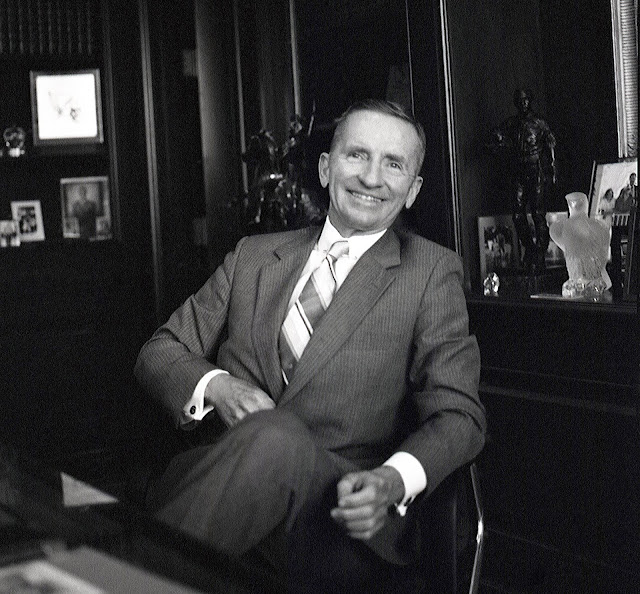Josephine Holt Perfect Bay: The First Woman to Head a NYSE Member Firm
Josephine Holt Perfect Bay was the first woman to the head a member firm of the New York Stock Exchange and is the only female executive in the Ford Motor Company Syndicate.
In 1940, Charles U. Bay
became senior partner of A.M. Kidder & Co. In 1946, however, he became
Ambassador to Norway under President Harry Truman and took a leave of absence
from the firm until 1953. In
1955, when Bay died, he owned about 71% of the firm’s stock. After his death,
in 1956, Charles’s wife, Josephine Perfect Bay, assumed his position as the
president and chairman of A.M. Kidder & Co., Inc. because the New York
Stock Exchange rules required any stockholder who owned “more than 45% of a
member company’s shares” to either sell or “take an active part in the firm.”
Born in Iowa, Josephine Holt
Perfect Bay (1900-1962) was raised in Brooklyn. The daughter of Otis Lincoln
Perfect (1860-1919), a real estate broker, she was a graduate of the Brooklyn
Heights Seminary (1916) and studied at Colorado College at Colorado Springs.
She and Charles U. Bay married in 1942. In 1959, she remarried to Capton
Michael Paul (1901-1980), a widower and a native of Ulanvdinsk, Outer Mongolia.
Paul’s father, Michael A. Iogolevitch, had been the Surgeon General under Czar
Nicholas. A trained violinist, Paul immigrated to the United States in 1917. In
1919, he opened a branch bank in Harbin, Manchuria for the National City Bank
of New York after meeting Frank A. Vanderlip, the bank’s president. In 1922, he
started his own firm dealing in precious stones and art. Eventually he settled
in Texas, where he entered the oil business. He joined the NYSE in 1933.
In 1962, Josephine Bay Paul
died and the following year, C. Michael Paul, then the president, chairman and
chief stockholder of A.M. Kidder & Co., Inc., decided to sell the firm to
Reynolds & Co. and Francis I. duPont & Co. Paul said, “Since I have had
no one to share the burden of running the firm as I had when Mrs. Paul was
alive, I thought it best to hand it over to others. I want to have more free
time for all my activities—the medical and educational philanthropies with
which I’m connected and also my bowling and fishing.” According to Paul, Reynolds and duPont approached him about the sale, which was
for cash. Paul said that he did not want to devote the time necessary to expand
the business and maintain its quality so he decided to sell.





Comments
Post a Comment